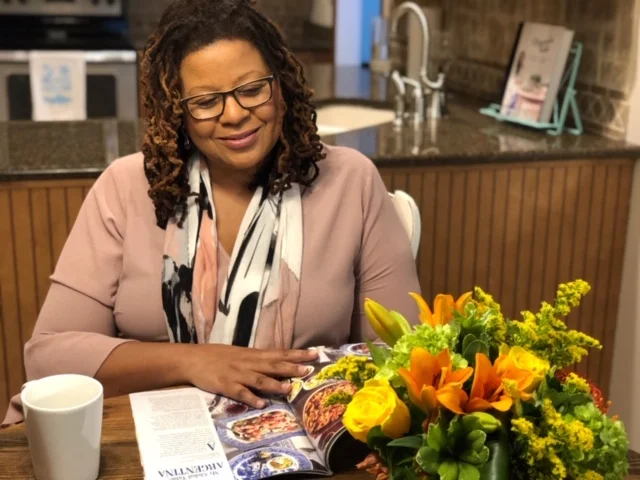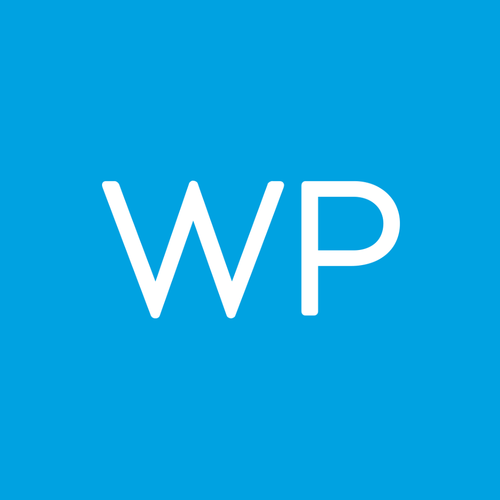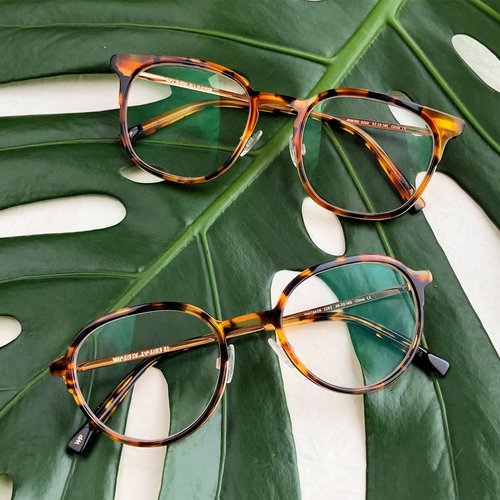BABE #297: YVETTE ANGELIQUE HYATER-ADAMS - Founder, Narratives for Change
Yvette is the principal, writer and storytelling facilitator at Narratives for Change, where she works with writers, leaders and teams to build professional strategies. The work she holds closest to her heart, though, is helping women and girls find their voice through storytelling; to unpack barriers, explore experiences, envision possibilities and advocate for change. Her resume of diverse roles in music, retail, banking and consulting has taught Yvette how to see a continuum of realities from various lenses, and we’re rooting her on as she uses her skills and talents to create a ripple effect of empowerment, strength and resiliency in her community and beyond.
The Basics:
Hometown: Washington, D.C.
Current city: Atlantic Beach, Florida
Alma mater: Goddard College; Southern Illinois University at Carbondale
Degree: M.A., Transformative Language Arts (Creative Writing for Personal and Social Transformation)
Very first job: Part-time guitar teacher and sales consultant at Sears Roebuck and Company
Hustle: Principal, Writer, Storytelling Facilitator, Narratives for Change, LLC
The Interests:
Babe you admire and why?
Ruth King. Ruth embodies what I long to be better at becoming as a black woman—one who lives an integrated life as a writer, activist, Buddhist practitioner, cares deeply about her community and is a compassionate healer. Ruth shows people of color in particular ways to care for ourselves, while engaging in activism as we work to interrupt and transform behaviors and systems of oppression. Her work is encouraging as it recognizes the trauma people of color carry in mind, body and spirit, and guides us to take care of ourselves and each other through mindfulness practices. Knowing there is no such thing as perfection, I want to strengthen my stride in cultivating a mindfulness where my responses allow for me to experience a deeper sense of freedom and less suffering from racial and gender distress. In other words, radical self-care.
How do you spend your free time?
Sleeping. There is an intensity in the way I live that I’m doing my best to shift. It is one of the reasons I moved to Jacksonville—I’m being completely real in this response. My life/work/way of being is so interconnected it always feels like “I’m working.” Having free time for me looks like no expectations, but to serve my own desires without another person expecting something from me. That’s a hard space for me. I spend a lot of time listening as part of my work in the world. So, quite frankly, in my “free time” I don’t want to listen to anybody. Free time, for me, looks like quiet space.
Favorite fictional female character?
Olivia Pope, from “Scandal.” I’m not a big TV person, but I was so intrigued with her role as a powerful, black intelligent woman—she so represents how I see so many black women I interact with and know—her character runs counter to how a lot of people “see us.”
Go-to coffee order and/or adult beverage?
12 oz, extra-hot latte (real milk).
Current power anthem?
“Endangered Species,” by Dianne Reeves.
What would you eat for your very last meal?
Deep-fried tofu drizzled with fig sauce, sautéed garlic collard greens, vegetable fried rice with extra mushrooms, my own famous non-vegan cornbread, non-vegan pound cake and a hot latte.
What’s something you want to learn or master?
Inner peace. An easy calmness from the inside-out, not being attached to any outcome.
What’s your favorite literary piece of all-time?
“A Wrinkle in Time.” Seriously, I loved this book forever!
The Hustle:
Tell us about your hustle.
I am a writer and storytelling facilitator. As such, I compose poetry and essays, teach writing workshops and work with leaders and teams and their system narratives. When I work with writers or leaders, I help them build strategies. I’ve been playing with calling myself a griot doula, because the work I love best is when helping create pathways for women and girls to use storytelling to birth their voice. We work together to unpack barriers, explore experiences, envision possibilities and advocacy. My writing practice speaks to the intersectionality of art, leadership and social issues such as sexism and class, racism and our environment.
What does your typical workday look like?
I don’t have a typical day. At any given time some of these happen: I get up. Read email and social media. Read a poem or an essay. Journal. Meditate. (I’m trying to head back to a practice of sitting on the beach for 15 to 30 minutes, just to be in nature and releasing adrenaline.) I meet with people face-to-face and virtually. I work with people across the country and time zones, and in Europe and Asia. I give feedback on a manuscript or design a team intervention, or pen a lesson plan for creative writing, research for an article or project, or fine tune and execute goals in my business plan. I volunteer a lot. I try to stop to take a rest during the day, because I suffer from insomnia as I dance through this menopause thing. I cook and eat vegan. I take Tai Chi classes; I will get back to easy yoga soon. I’ve got aches and pains I tend to, off and on. I look at Facebook too much and text a lot. I want to stop doing so much of this. I listen to people’s stories. People just want someone to listen to them. I write long letters.
Have you always been passionate about writing?
Yes; always a passionate writer. First in my music as a songwriter, then writing plays, then poetry and essays. I come from a family of storytellers. I always enjoyed hearing the good ones, and now tolerate the ugly stories. I recognize the importance of writing down stories, especially in the black community. Oral tradition is how we held onto what little we know—but today, we have the capacity to capture our stories differently, and I want to see us do so: write our stories. Pass them onto our children, onto our communities. This is important to preserve and remember our history in our own voices; not leaving it up to someone else telling our stories, usually out of context. When I returned to graduate school, I needed to do mad research on black women’s mental health and the connection to physical health. Most of this research about black women’s mental state and bodies was written by white men—say what!? What I learned about black women and mental health often came from fiction writers (where quite a bit of fiction stories are based on real people and situations). So, Alice Walker, Toni Morrison, Nella Larsen, Zora Neale Hurston, Dorothy West, Terry McMillan, bell hooks (nonfiction); they all were teachers and guides for me to understand the brokenness of emotional wellness in our community of black women. The emphasis of my research and thesis was to look at ways the process of creative and expressive writing could heal, develop and transform the lives of middle-class black women (a group who had access to mental health services, but rarely used it). With this research, I’ve been on a mission to have women and particularly women of color write their stories for healing, creativity and personal growth.
Do you have any advice for those who are passionate about advocating through their work?
Go deep within your story. I mean, authentic. Don’t do the typical, nice, happily-ever-after story to make your point. Tell the ugly and the lessons learned. Be human. Then, connect the dots by showing the pattern of experience or trends that create marginalization and oppression, silencing human beings in our communities. Offer ways of undoing practices that cause marginalization, oppression and silencing. Humans created these things. We humans can undo the deed.
Do you have any memorable stories about the impact of your work?
After 9/11, I was involved with an organization called ArtistCares. We developed a model where artists across disciplines partnered with therapists across disciplines to go out in New York City and Washington, D.C. communities to help people deal with the shock and trauma of the violent plane crashes. Well, I was working with a group of women writers in Philadelphia. We wrote together for eight weeks. One woman never read or shared her stories with us, but that was cool. On our last workshop day, she felt safe enough to read a story she wrote. She wrote about being in one of the towers on Wall Street, having to evacuate, being in a daze and shock, waking up in a hospital with her family not knowing, and she was now afraid to leave her house. We were all quiet in the circle but stayed within the writing circle boundaries, which meant we focused on aspects of her story that we felt were powerful and stayed with us. This woman credits her path to healing as a result of participating in the workshop. I’ve never stopped offering this kind of space since that time in 2002.
How has being a woman affected your professional experience?
I walk in an interdisciplinary profession in intersectional identities. I am an artist, cisgender, straight, middle-class, Buddhist, tree-hugger, African American woman. I get eye-squints and shoulder shrugs on some of these identities. My multiple identities bring challenges and advantages. As a black woman poet and essayist, I feel forced to bend toward a certain way for creating my work—such as, I am legitimate to speak about racism, perhaps sexism. However, in spaces of Buddhism and environmentalism, my voice isn’t seen as serious because the narrative is pretty much owned by whites and men, in the United States. In my profession as an artist and strategist, I want all of my identities that inform my competency acknowledged as purely my experience. I personally cannot change a system of oppression in which I do not hold power. But I can push against it, organize, speak up, challenge and be courageous. And in spaces where I do hold power in oppressive systems—as in economic class, education and gender identity, I can speak up and challenge my own dominant group members—creative space for others who are not seen or heard.
What’s the gender ratio like in your industry? Do you see it evolving?
My work is interdisciplinary as a writer, teaching artist, narrative coach and curator. In all of these spaces, the ratio of men to women is less important than the economic disparities among men and women. Men dominate lucrative publishing contracts, men dominate higher level, higher ed teaching positions, men earn higher fees in consulting contracts, and men dominate well-paid curating work. Period. Men out-earn women in nearly every aspect of careers and this is something any institution can undo by auditing their pay practices and shifting the behavior that women somehow are OK to be paid less than men doing similar work. That’s an attitude and a behavior that can stop immediately.
How has your experience as a mother influenced your work?
Being a mother is the most humbling and transformative experience of my life. To give birth to someone who looks like you or your partner (or a family member) is amazing. I realize not all mothers birth their children, but this is my story and journey, so for me, this was big. I had my kids in my thirties, eight years after being married. Because I was an “older mom” by definition in those days, I was more established in my career, owned a home and was financially sound. What I didn’t expect was how my little planned-out life could be immediately disrupted by [baby vomit] on my suit, running down my fancy stockings and pumps on the way to a board meeting. Having children taught me I had absolutely no control of my universe. It was humbling because I lived such a planned life—down to the minute. Even when we were on vacation pre-kids, I planned every second. I crack up at that now. I’m still a planner, but I can let go of stuff way easier than ever. I vent first, then I let it go.
What’s your approach to fostering relationships?
I tend to create space and time to listen to people’s stories. I try to give realistic time to do so. Sometimes people want quick conversations or short, written messages. I try to give a fuller context for things. I like to connect the dots. Some people value this approach and feel connected because I take the time to hear them and make connections in their stories. I probably tell too much, reveal what I really think too early. But it’s my attempt to be authentic. Holding back takes too much energy. If I say how I feel or that I am unclear, I’m just being honest. I call it “being real.” When I can show up and “be real,” even if people don’t like it, they can experience me as consistently showing up that way. When working with CEOs, this was the consistent positive feedback I’ve received for over 30 years—they trusted me because I said what I thought and felt, even if they didn’t agree with me. Appreciating my directness and having no time for games attitude was positive, but that doesn’t work for everyone. One thing I’m practicing more often is to allow some time to noodle or grapple with disagreements and come back and be willing to change my viewpoint (or at least explore it). When I come back and do this with people, we develop a trust. If I have an “agenda,” I say so. I don’t think I have to hide what I’m trying to do. I try to do no harm. Sometimes I’m successful; other times I’m sure I’ve failed.
Are you involved with any other side projects?
Because of my commitment to women and girls, I enjoy a relationship with Generation WOW, mentoring high school girls and curating the “Letters to Younger and Future Self Panel.” [I’m also involved] with projects associated with See The Girl at the Delores Barr Weaver Policy Center. From an arts and social justice perspective, I’ve collaborated with several artists, arts organizations and organized events out of Yellow House—Jax by Jax Literary Arts Festival, Thony Aiuppy, Alternate ROOTS, U.S. Department of Arts and Culture. I’m also a TEDx speaker coach, supporting folks in telling their story.
Who are some women in your field you look to for inspiration?
The first person I think of is Alexandra Merrill, who goes by “Zanda.” She wouldn’t describe herself this way, but she is a philosopher. I’ve been learning from her through episodic gatherings over several years, her writing (articles and drafts), and recordings of her storytelling her work. Her expertise lies in teaching about archetypal processes in group life, comparative mythologies and cross-cultural themes which are always embedded in group life. She works with the visible and invisible differences, the unconscious processes and the legacies of oppression which are both empowering and inhibiting the growth of the life force in the collective. She seeks to collaborate with members of a group to lift oppression and serve the cause of supporting world peace. She is a “sage mother” for me, as a mentor and friend. Her brilliance [is her] capacity to lift you, love you, teach you and support you in doing the work you need to do for yourself, when you are ready. I got mad respect and love for Zanda.
Career and/or life advice for other babes?
Never, never, never, never, ne-va give up on your dreams. Expand your mind and release limitations to imagine what you see yourself doing and being. Then, work backwards asking, What conditions and actions must I take to reach the next step? It takes just one step at a time. (And it’s your timeline, not somebody else’s timeline.) That’s a hard one for babes, because we seem to make time to fix the lives of others before caretaking our own.
In partnership with: Warby Parker
Warby Parker is home to a trendy, socially-conscious eyeglass collection (with a kickass startup success story.) We're big fans of their Home Try-On Program, where you can select 5 different frames online, have them delivered to your door, take 'em for a spin, pick out your faves, then send them all back — all before spending a dime. Learn more about it here.
*This is an affiliate partnership. That means when you shop using the links we provide, a portion of your purchase comes right back to us, so we can continue creating content that matters. Of course, we only promote brands and products we genuinely stand behind. Thank you so much for your support!
Interested in advertising with us? Email us!
Join our community:
Instagram / Facebook / Twitter / Newsletter / Job Board / Partnerships / Shop











